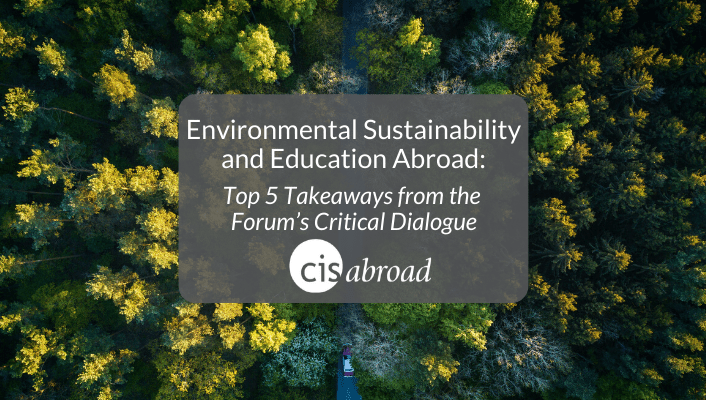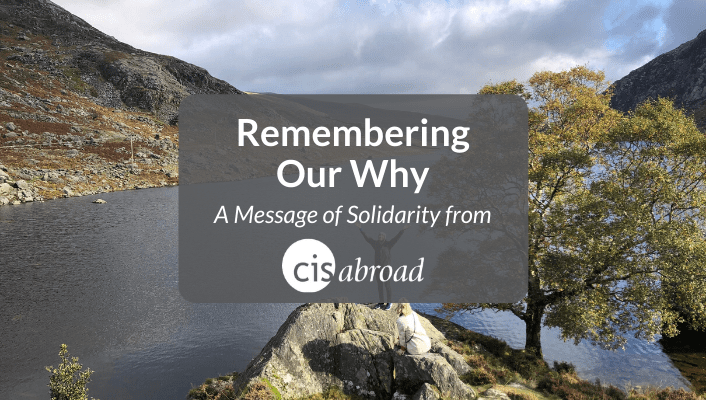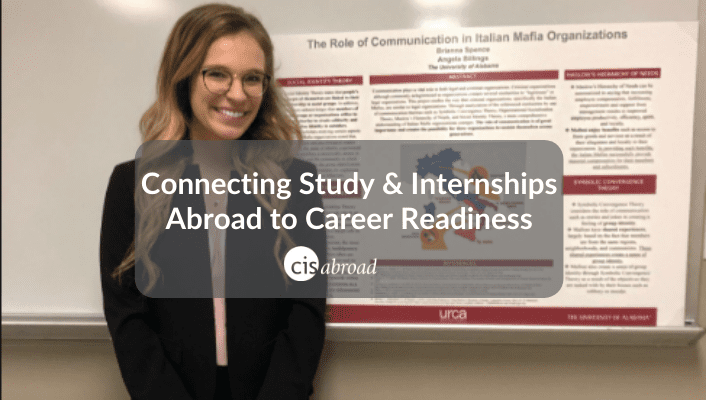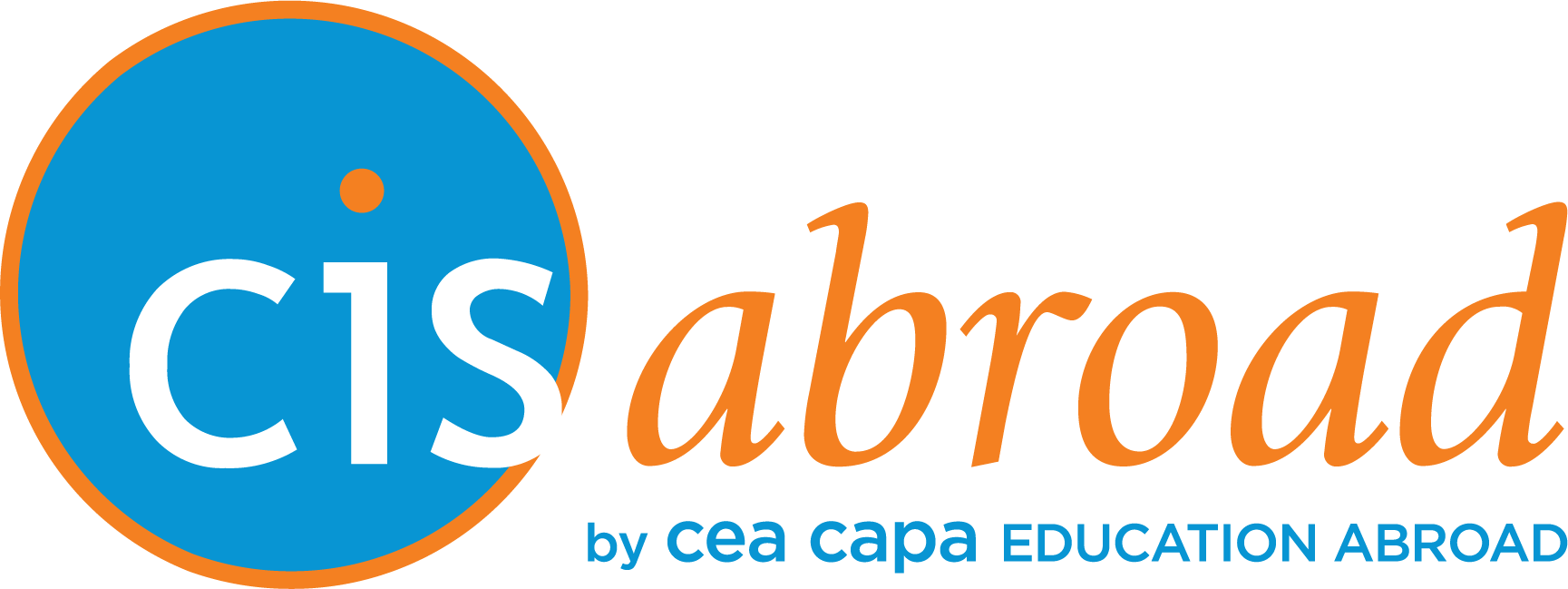Introduction
As part of Forum on Education Abroad’s annual conference, I attended The Forum’s Critical Dialogue on Environmental Sustainability and Education Abroad. Below is a summary of the dialogue topic and my key takeaways.
What is a Forum Critical Dialogue?
The Forum’s Critical Dialogues bring together no more than 50 participants and facilitators in an informal setting for facilitated, collegial discussion focusing on issues of concern to the field.
Facilitators:
- Jay Antle, Johnson County Community College
- Lindsey Lyons, Dickinson College
- Lucy Spelman, Rhode Island School of Design
Dialogue Description
Education abroad professionals strive to increase the number of students who participate in safe, high quality experiences abroad. What does this mean for our impact on the planet? What environmental considerations should we have in place when choosing program partners or designing our own faculty-led programs? What can we do to equip students with the knowledge needed to make good programmatic choices, to understand the power of their actions, and to ignite a lifelong interest in protecting the places that impact them and which they impact?
Top 5 Takeaways:
1. Running sustainable programs means more than just being environmentally sustainable
We also need to look at the impact on the local community (“people” “planet” and “profit” are factors to consider). The session focused primarily on environmental sustainability, but touched on the other facets. How are we impacting the local communities we send students to? How can we make sure we’re doing so in a thoughtful, sustainable (not exploitative) way?
2. Short-term programs are considered the “worst offenders”
Short-term programs can “pack more of a punch” when it comes to environmental impact. This is due to the long flights required to reach a destination and the tendency of short-term programs to hop around between cities to expose students to as much as possible.
3. There are ways that we can help make short-term faculty-led programs more sustainable.
Some examples are using local vendors rather than international hotel chains. Also, ensuring that service projects are actually helping the community. Our VP of Academic Affairs, Dr. Jenn Engel is working on best practice in this arena! Additionally, choosing trains over planes when possible. This may require faculty leaders to be a bit more flexible with their itineraries. In the end though, it’s our responsibility to ensure that we are developing programs that are both aligned with academic goals and have a positive impact on the local and global community.
4. The hard truth is that not all programming is environmentally sustainable.
At the end of the day, we may need to recognize that some student mobility is NOT sustainable. We have to look for ways to help create global experiences for students without flying around the globe. The challenge is figuring out how to measure which programs are “worth it” and how to advocate for the value of international travel while also not dismissing the very real environmental impact it has. How do you measure the positive impact a student going abroad has (hard to quantify) against the environmental impact (easier to quantify the carbon cost of their travel)?
5. This conversation is both more and less relevant now that global travel is all but at a standstill.
COVID-19 is accelerating the need for this conversation, and also humbling us to the reality that we will not be able to send every student, everywhere, forever. And further – as individuals, organizations, etc. that make their livelihood from international education, we should be looking to see how we fit into this “new world.”
Conclusion
In the end, I left with lots of questions and fewer answers, but that’s the point, right? We have quite a bit of work to do to identify, articulate, and support best practices in the realm of sustainable international study and travel. With COVID-19 likely to impact travel for the foreseeable future, we need to consider how we as education abroad professionals can continue developing globally-minded citizens in a time where international travel may be limited.
Finally, we also need to recognize that this is not just a short-term challenge, a phase that we pass through to return to “normal.” Once this pandemic passes (and it will!), we need to be prepared to take a critical look at what programs we are running, and which ones support a sustainable future. At CIS Abroad, we are engaging in these discussions internally, and look forward to continuing the conversation with you, our partners, too!
Interested in making your own custom program more sustainable?
I’d love to connect with you about environmental sustainability. My team is ready to design the program that helps meet your institutional or academic goals. CIS Abroad guarantees consistency in communication, logistical expertise, 24/7 onsite support, diligent planning, and professional execution. Get started here.




